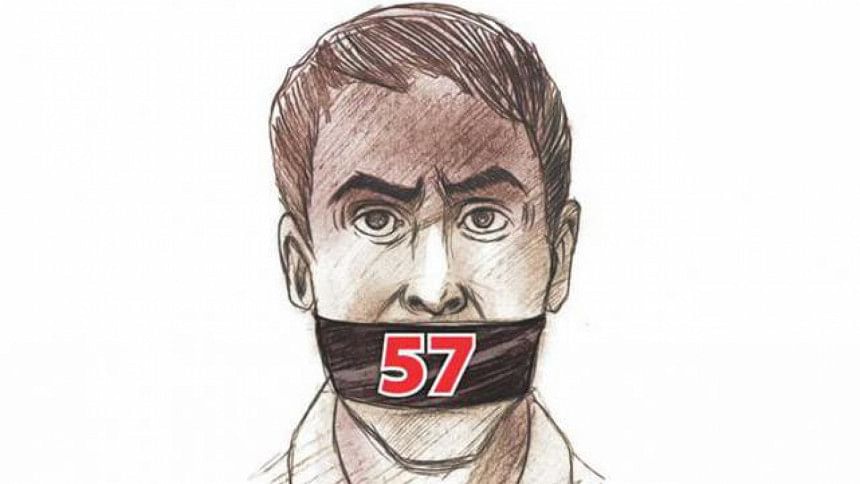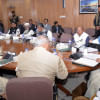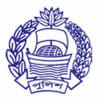Section 57 to be there but with some changes

The cabinet is likely to approve the Digital Security Act-2018, incorporating section 57 of the ICT Act in the proposed law with some modifications despite outcries from rights activists and journalists over the controversial provision.
Section 57 deals with defamation, hurting religious sentiments, causing deterioration of law and order and instigation against any person or organisation through publishing or transmitting any material in the website or in electronic form.
It stipulates maximum 14 years in prison for the offences.
Now, the new draft of Digital Security Act-2018 splits these offences into four separate sections with punishment ranging from three to 10 years' term, sources said.
Besides, the proposed law in another section said anyone spreading negative propaganda against the Liberation War or the Father of the Nation, using digital devices, will risk being sentenced up to 14 years' jail or a fine of up to Tk 50 lakh or both.
In the previous draft, the highest punishment for the offence was life imprisonment or a fine of Tk 1 crore or both.
The new law stipulates some crimes as “non-bailable”, considering the gravity of crimes and magnitude of punishment, sources added.
In August last year, the cabinet approved a draft of the Digital Security Act and the prime minister then directed the law ministry to scrutinise the draft to avoid any repetition, contradictory provision or inadequacy.
After holding three meetings with different ministries and two with other stakeholders, the law ministry sent the final draft of the act to the ICT Division on January 18 with some amendments to the previous draft, sources said.
The new draft is likely to be placed before the weekly cabinet meeting today, they added.
The government move comes at a time when the demand for the repeal of section 57 is already loud and clear.
Rights activists and journalists are also expressing deep concern over section 19 of the draft Digital Security Act as the provision contains all the elements of section 57 that goes against the freedom of the press, speech and expression.
Section 19 of the first draft of Digital Security Act says a person may face up to two years in jail or Tk 2 lakh fine or both if he or she is found to have deliberately published or broadcast something false or obscene and something that pollutes the human mind, defames someone and hurts religious sentiments.
As per the draft, section 19 and 20 of the proposed Digital Security Act are related with section 499 of the Penal Code and section 57 of ICT Act.
“Considering the existing reality, elements of section 57 were split into four separate sections [section 25, 28, 29 and 31 of Digital Security Act],” reads the summary.
Section 20 of the previous draft said a person may face a maximum sentence of seven years or a fine of Tk 7 lakh or both if he or she is found to have deliberately published or broadcast something which can spread hatred and created enmity among different groups and can cause deterioration of law and order.
Section 499 of Penal Code reads, “Whoever by words either spoken or intended to be read, or by signs or by visible representations, makes or publishes any imputation concerning any person intending to harm, or knowing or having reason to believe that such imputation will harm, the reputation of such person, is said, except in the cases hereinafter excepted, to defame that person.”
According to the summary, sections 54, 55, 56, 57, and 66 of the ICT Act will be abolished once the Digital Security Act comes into operation.
Sections 17 and 18 of the previous draft of Digital Security Act, which are related to pornography and child pornography, have not been incorporated into the final draft as there is already the Pornography Control Act to deal the issue.
A new section was incorporated in the final draft allowing the judge, who will deal with a case under the law which is technical in nature, taking opinion from experts concerned.
The first draft had seven chapters and 45 sections while the final draft has nine chapters and 63 sections, said the summary.
Asked about the new draft, eminent rights activist Nur Khan Liton said the government has made some amendments and changes, mainly regarding the punishment, in section 57 of the ICT Act incorporating it into the proposed Digital Security Act but people's expectation was not fulfilled.
“Still there is scope that vested quarters can misuse the new act as they have misused section 57,” he told The Daily Star yesterday.
There should be a section in the new act binding the authority concerned to do scrutiny before taking cases for defamation or hurting religious sentiments, he said.
CONTROVERSY
Rights activists and journalists have been critical of section 57 of ICT from the very beginning, and the debate over the provision and demand for its repeal intensified following the arrest of journalist Probir Sikdar in 2015.
The senior journalist was arrested under the ICT Act for one of his facebook posts.
Experts say the section goes against people's right to freedom of expression and free speech and it contains vague wordings, allowing its misuse against newsmen and social media users.
Journalists took to the street last year after more than two dozen journalists were sued under the section. The Editors' Council in July demanded the government fully repeal section 57 and refrain from taking any initiative to re-introduce similar provisions in any new law.
Amid widespread criticisms, Law Minister Anisul Huq on several occasions said section 57 would be removed and the Digital Security Act was in the pipeline.
In 2016, the government took initiative to enact the law to ensure national digital security and prevent rising digital crimes.

 For all latest news, follow The Daily Star's Google News channel.
For all latest news, follow The Daily Star's Google News channel. 








Comments